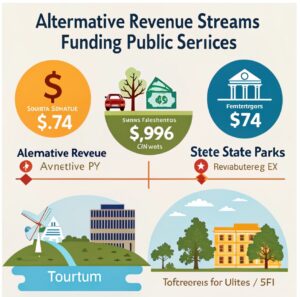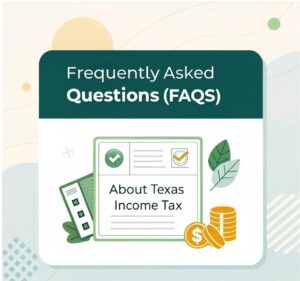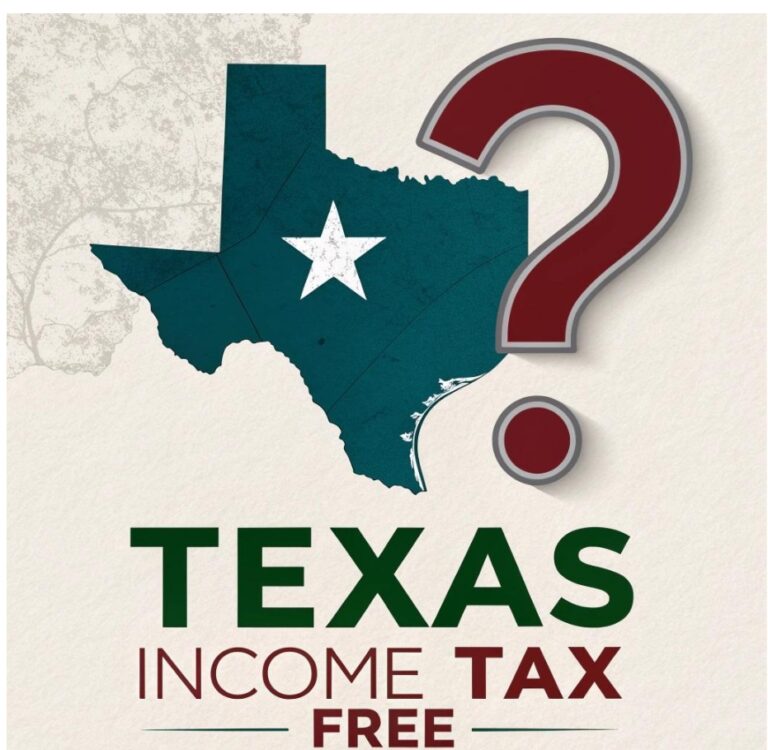The allure of a no income tax state Texas is a powerful draw, conjuring images of thicker paychecks and a lighter tax burden. It’s a cornerstone of the state’s identity, often touted as a key ingredient in its economic dynamism and appeal to both individuals and businesses. However, the reality of taxation in the Lone Star State, while indeed lacking a personal income tax, presents a more nuanced picture.
This article aims to dissect the specifics of Texas’s tax structure, venturing beyond the simple slogan to provide a comprehensive understanding for anyone considering residency or business operations within its borders. We will explore the historical and constitutional underpinnings of this policy, delve into the taxes that do exist, analyze the economic ramifications, and address common questions that arise when considering the tax landscape of Texas. We will also examine the Texas tax benefits in LLC, which offer unique advantages for business owners looking to establish their entities in the state, such as favorable tax treatment and asset protection.
The Absence of Individual Income Tax: Exploring its History and Underlying Principles
The bedrock of Texas’s no income tax state Texas claim lies in its foundational legal documents and a long-held political ethos. Unlike many states that derive a significant portion of their revenue from taxing the earnings of their residents, Texas’s constitution places considerable limitations on the state’s ability to levy such a tax.
This stance is deeply rooted in a historical preference for lower levels of state intervention in personal finances and a reliance on alternative methods of funding public services. This philosophy has been a consistent thread throughout Texas’s history, shaping its fiscal policy and contributing to its distinct identity within the United States.
Comparing Texas to the other handful of states that also forgo a personal income tax reveals both similarities and unique characteristics. While these states share the commonality of not taxing individual earnings at the state level, their reliance on other revenue sources and their overall fiscal structures can vary significantly. Texas, with its large and diverse economy, has developed a particular blend of taxes and fees to support its public needs.
The Texas Franchise Tax: A Comprehensive Guide for Business Owners
While the individual taxpayer in Texas enjoys the advantage of a no income tax state Texas, the business landscape presents a different scenario. The state levies a significant tax known as the Texas franchise tax, a levy on the privilege of conducting business within the state. Understanding the intricacies of this tax is crucial for any company operating or considering establishing a presence in Texas.
The impact of the franchise tax can vary significantly across different businesses. Larger, more profitable companies will naturally have a greater tax obligation, while smaller businesses may fall under the exemption thresholds or benefit more significantly from the allowable deductions. When comparing the Texas franchise tax to the corporate income taxes levied by many other states, it’s important to note the fundamental differences in their bases.
While corporate income tax is directly tied to a company’s profits, the franchise tax is based on revenue minus certain costs, meaning even businesses that are not highly profitable may still owe franchise tax. This distinction is a critical factor for businesses to consider when evaluating the overall tax environment of a no income tax state Texas.
Alternative Revenue Streams: How Texas Funds its Public Services
The absence of a personal income tax in this no income tax state Texas necessitates a robust system of alternative revenue generation to fund the state’s essential public services, including education, infrastructure, healthcare, and public safety. Texas relies on a diverse portfolio of taxes and fees to meet its financial obligations.

Sales Tax stands as a significant pillar of the state’s revenue system. Texas currently levies a state sales tax rate of 6.25%. In addition to this state levy, local governmental entities, such as cities and counties, have the authority to impose their own sales taxes, resulting in a combined state and local sales tax rate that can vary across different jurisdictions but averages around 8.20%.
Property Taxes form another crucial component of the Texas tax landscape, although it’s important to note that Texas does not have a statewide property tax. Instead, property taxes are assessed and collected at the local level by various taxing entities, including counties, municipalities, school districts, and special districts.
Severance Taxes play a particularly important role in Texas’s revenue stream due to the state’s prominent position in the oil and gas industry. These taxes are levied on the extraction of natural resources, primarily crude oil and natural gas. The tax rates for severance taxes can fluctuate based on market conditions and the specific type of resource being extracted. Given the scale of the energy sector in Texas, severance taxes contribute substantially to the state’s overall financial resources.
Motor Vehicle and Fuel Taxes also provide dedicated funding for specific state needs. Taxes on the sale and registration of motor vehicles, as well as taxes levied on gasoline and diesel fuel, are primarily earmarked for the maintenance and improvement of Texas’s extensive transportation infrastructure, including roads and bridges.
Economic Implications: Weighing the Advantages and Disadvantages
The “no income tax state Texas” status is often presented as a significant catalyst for the state’s robust economic growth and its reputation as a business-friendly environment. The absence of a state income tax can indeed yield several key economic advantages. It serves as a powerful magnet for businesses considering relocation or expansion, as the lower overall tax burden can significantly improve their bottom line. Similarly, individuals seeking to minimize their tax liabilities are often drawn to Texas, contributing to the state’s substantial population growth and a vibrant workforce.
Finally, there are ongoing discussions about whether the state’s current revenue structure is always sufficient to adequately fund essential public services compared to states with more diversified tax systems, although Texas’s strong economic growth has generally mitigated significant shortfalls.
Forming an LLC in a “No Income Tax State”: A Mutually Beneficial Scenario
The decision to form a Limited Liability Company (LLC) in Texas can be particularly advantageous when considered in conjunction with the state’s “no income tax state Texas” policy. The fundamental principle of pass-through taxation for LLCs means that the profits generated by the business are not taxed at the entity level but are instead passed through directly to the owners (members), who then report these profits on their individual tax returns. In the context of Texas, this pass-through income is not subject to state income tax, offering a significant financial benefit to LLC owners residing in the state.

Beyond the direct tax advantages in a no income tax state Texas, forming an LLC in Texas provides several other compelling benefits for business owners. The primary advantage is limited liability protection, which shields the personal assets of the LLC members from the business’s debts and legal liabilities.
The combination of these legal and structural benefits, coupled with the favorable tax environment of a no income tax state Texas, makes Texas an exceptionally attractive jurisdiction for entrepreneurs and small business owners looking to establish and grow their ventures.
Conclusion: Understanding the Full Spectrum of Texas Taxes
In conclusion, while the widely used phrase “no income tax state Texas” accurately reflects the absence of a personal income tax, a comprehensive understanding of the state’s overall tax structure requires a deeper dive. Businesses operating in Texas are subject to the franchise tax, and the state relies heavily on sales taxes, property taxes, and severance taxes to fund its public services. The absence of a personal income tax has undoubtedly been a significant factor in Texas’s economic growth and its appeal to both individuals and businesses.

Is it unequivocally true that individuals residing in Texas are exempt from paying any form of state income tax?
Yes, it is true that Texas does not levy a state-level personal income tax on wages, salaries, interest income, dividends, or capital gains for its residents. This means that individuals living and working in Texas are not required to file a state income tax return or pay state income tax on their earnings.
Texas primarily funds its public services through a combination of state sales tax (which constitutes a significant portion of its revenue), local property taxes (which are a major source of funding for local governments and schools), the Texas franchise tax on businesses, as well as severance taxes on oil and natural gas production, motor vehicle taxes, and various fees and other miscellaneous revenue sources.
Do businesses operating in Texas also enjoy a complete absence of income-based taxes at the state level?
Not entirely. While Texas does not have a traditional corporate income tax based directly on net profits, most businesses operating in the state are subject to the Texas franchise tax. This tax is based on a company’s gross revenue minus certain allowable deductions, representing a significant state-level tax obligation for many businesses.
Does the absence of a state income tax directly translate to a lower overall cost of living for individuals residing in Texas compared to other states?
Not necessarily. While the lack of state income tax can increase disposable income, Texas has relatively high property taxes and a state sales tax that, when combined with local rates, can be significant. The overall cost of living can vary depending on individual circumstances, housing costs, and spending habits.
Are there any discussions regarding the potential implementation of a state income tax in Texas in the foreseeable future?
Historically, there has been strong political resistance to implementing a state income tax in Texas, and it is not a prominent feature of current legislative discussions. The state’s reliance on other revenue sources and the constitutional limitations make the implementation of a state income tax unlikely in the near term.
How does the overall tax burden in Texas, considering the absence of income
The overall tax burden in Texas can be comparable to that of other states, but the distribution is different. Individuals in higher income brackets may find their overall state and local tax burden lower in Texas due to the absence of income tax, while those with lower incomes may pay a larger percentage of their income in sales and property taxes.
What are some of the most significant advantages that businesses operating within Texas realize specifically due to the state’s “no income tax” status?
A key advantage for businesses is the absence of a corporate income tax, which can reduce their overall tax liability and make Texas a more attractive location for investment and expansion. This, coupled with a generally business-friendly regulatory environment, can foster economic growth and job creation.
Why is Texas often considered a particularly appealing destination for retirees, given its reputation as a “no income tax state”?
The absence of a state income tax in Texas can be particularly attractive for retirees with income from pensions, Social Security, and distributions from retirement accounts, as these forms of income are not subject to state taxation, potentially leading to significant tax savings compared to states that do tax retirement income.
What is the role and function of the Texas Secretary of State’s office in relation to businesses operating within a state that does not have a personal income tax?
The Texas Secretary of State is the primary state agency responsible for the creation, registration, and maintenance of records for all business entities operating in Texas, including LLCs, corporations, and partnerships. Businesses must file their formation documents and other required filings with this office to operate legally within the state, regardless of the state’s income tax policy.
Are there any specific industries or sectors of the economy that appear to particularly benefit or thrive within Texas due to its “no income tax state” environment?
Industries with a high concentration of high-income earners, such as technology and finance, may find Texas attractive due to the lack of personal state income tax. Additionally, businesses that can effectively manage the franchise tax, such as those with high sales volumes and manageable cost of goods sold, may also find the overall tax environment favorable.
Enjoyed this? Share this post with fellow fans and influencers, and be sure to check back regularly for the latest updates, insights, and news on all things simpcity!

